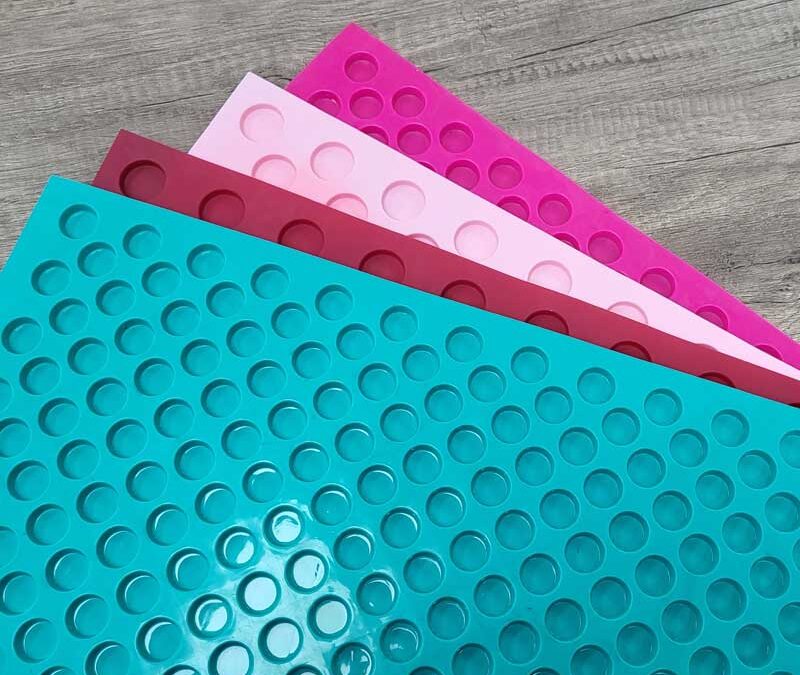The consumer goods industry is highly regulated, especially regarding food safety. If you’re making any kind of rubber or polymer part for machines that process food, you need to understand and comply with the FDA’s 21 CFR 177.2600 regulations.
This standard is often referenced alongside USP Class VI approval tests, but these regulations differ in their objectives. While 21 CFR 177.2600 regulates food additives and materials that come into contact with food, USP Class VI requires more specialized testing because it regulates compounds that may be implanted directly into human or animal bodies, such as medical devices.
Ace Laboratories is committed to helping you determine if your products can be labeled as FDA compliant by providing reliable, repeatable testing of rubber elastomers. Read on to learn more about the FDA, how this regulation impacts your products and why ACE Labs is the right choice for getting – and staying – FDA compliant.
What Is the FDA Responsible For?
The Food and Drug Administration is the agency within the U.S. Health and Human Services Department that oversees public health. A large part of that arena concerns the safety of consumer goods, from food and pharmaceuticals to cosmetics and vaccines.
To ensure that our food supply remains safe, the FDA enacts standards and regulations for food and beverage handling at every point, from production to transportation to preparation and packaging.
What Does FDA CFR 21 177.2600 Concern?
Title 21 under the FDA’s Code of Regulations covers everything related to food and drugs. As you can imagine, it is long and complicated. Subchapter B concerns food for human consumption, and Part 177 deals with food additives.
Types of Food Additives
The FDA breaks down three different categories for substances that might be added to food intended for human consumption:
Direct Food Additives
This section regulates anything that is directly added to food, like dyes or preservatives.
Secondary Direct Food Additives
This section concerns components that are added to food during the manufacture, treatment or processing of food for functionality. Examples include adhesives on labels for fruit or vegetables.
Indirect Food Additives
This category of additives concerns materials and substances that come into contact with food but are not directly added into the food product. It covers packaging, containers and food processing equipment – which is where your rubber or polymer parts come into the picture. This part of 21 CFR 177.2600 is subtitled “Rubber Articles Intended for repeated use.”
It specifies that allowed substances must be:
- Generally recognized as safe (GRAS)
- Thoroughly cleansed before their first contact with food
- In a quantity that does not exceed the amount reasonably required to accomplish its intended effect
- Not intended to accomplish any effect in the food
FDA Approved Materials List for Food Contact
The FDA’s list of permitted substances under 21 CFR 177.2600 is long and exhaustive. The legislation also specifies product extraction limits for both aqueous (liquid) and fatty (greasy) foods.
Permitted material examples include:
- Elastomers like Acrylonitrile-butadiene copolymer
- Vulcanizing agents like ground sulfur
- Vulcanizing accelerants like benzoyl peroxide
- Vulcanizing retarders like Salicylic acid
- Vulcanizing activators like Diethylamine
- Antioxidants and antiozonants like Diphenylamine-acetone resin and Styrenated phenol
- Plasticizers like Butyl stearate and castor oil
- Fillers like Aluminum silicate and cork
- Emulsifiers like Sodium lauryl sulfate
- Miscellaneous additives like animal glue
Aqueous Food Regulations
Rubber or polymer parts coming into contact with aqueous foods must meet these extractable requirements:
- ≤ 20 mg/square inch of extractables when refluxed with water for 7 hours
- ≤ 1 mg/square inch in the succeeding 2 hours
Fatty Food Regulations
For components coming into contact with fatty foods, FDA regulations require:
- ≤ 175 mg/square inch of extractables after the sample is refluxed with hexane for 7 hours
- ≤ 4 mg/square inch in the succeeding 2 hours
How to Be FDA Compliant
ACE Labs is your go-to source for meeting the compliance standards that govern your industry. Our ISO/IEC 17025 accreditation assures that we operate competently and generate valid results that measure up to internationally accepted standards. Whether you’re making O rings, gaskets, sanitary clamp unions or other components for food processing equipment, our testing services can help ensure your materials are FDA compliant.
Let ACE Labs Help Meet CFR 21 FDA 177.2600 Regulations
Trust ACE Labs to deliver rubber testing laboratory services that meet the standards and regulations your industry relies on. Meeting your challenges is always our goal. Reach out today to see how our testing, development and consulting services can take your business to the next level.

